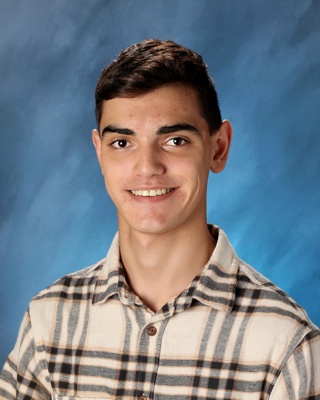Wes Benjamin
Q: What do you find most rewarding about being an educator?
A: The relationships with the kids–there’s absolutely no question about it. I’m retiring at the end of this year and the number one thing I’m going to miss is making relationships with the students. There’s a lot of staff too that I’ve enjoyed being around and working alongside. I’ll probably do some substitute teaching next year, but there’s no way you can get those relationships from subbing. It’s just not the same.
Kris Daughters
Q: Have you encountered any memorable or heartwarming experiences during your career that made you feel proud of your work?
A: Well, it’s always gratifying to get a card from a graduating senior who’s writing to me about what they learned from my class and how they’re going to use it. Those moments hearing back from my students are ones that I always treasure. My experiences working one-on-one with kids in English and journalism are great because I’m able to see through our discussions that they are learning and growing. Winning five state swimming championships is also a memorable highlight from my time here.
Sherry Leake
Q: What is the biggest life lesson you’ve learned working at Liberty over the years?
A: Being empathetic to other people’s situations and being a bit flexible is so important, and if you can’t do that, I don’t think you can be an effective teacher. That’s probably one of my biggest takeaways. If someone has been sick, for example, or they just lost their wrestling match, or they are just going through something that I know about, I’ve learned that I don’t need to be so rigid with deadlines. You can say, ‘it’s fine, don’t even worry about it. When you get to it, let me know, and I’m here to help.’ Deadlines are important because they help to keep kids accountable to doing the work, but not to enforce rigidly where you just become unaware and lack sensitivity to other people’s situations that might be really difficult for them right now.
Amy Cooke
Q: What is the biggest change you’ve seen at Liberty from when you started here to now?
A: There’s been a pretty significant demographic shift over the 27 years I’ve taught at Liberty. I think both the racial and economic demographics have changed. When I started here, Liberty was pretty blue collar, solidly middle class, and made up of a lot of Boeing families, machinists and things. Since I’ve been here, this school has definitely become much more upper class, but also more racially diverse. The homes around here used to be super affordable, so that certainly played a role in why Liberty was so middle class. A lot of students I have in my classes today would probably identify themselves as middle class but a lot of people at Liberty are not middle class.
Lanell Scheda
Q: What is the biggest life lesson you’ve learned working at Liberty over the years?
A: Take pride in whatever it is you do, and be the best at that job that you can possibly be. If it’s Donut Friday for all Liberty staff, I’m going, because I am a true staff member of this school just like the teachers and administration.
Doug Scheda
Q: What brought you to Liberty?
A: Well, I graduated here in 1980 and while I was here, not only was I a student but also a custodial assistant for my sophomore through senior years. This was part of an elective, and the class wasn’t that bad. After I got out of school, I was hired by the district to be a custodian in 1981, was here for a stint in the 1980s, and have been back here since the 2010s.



